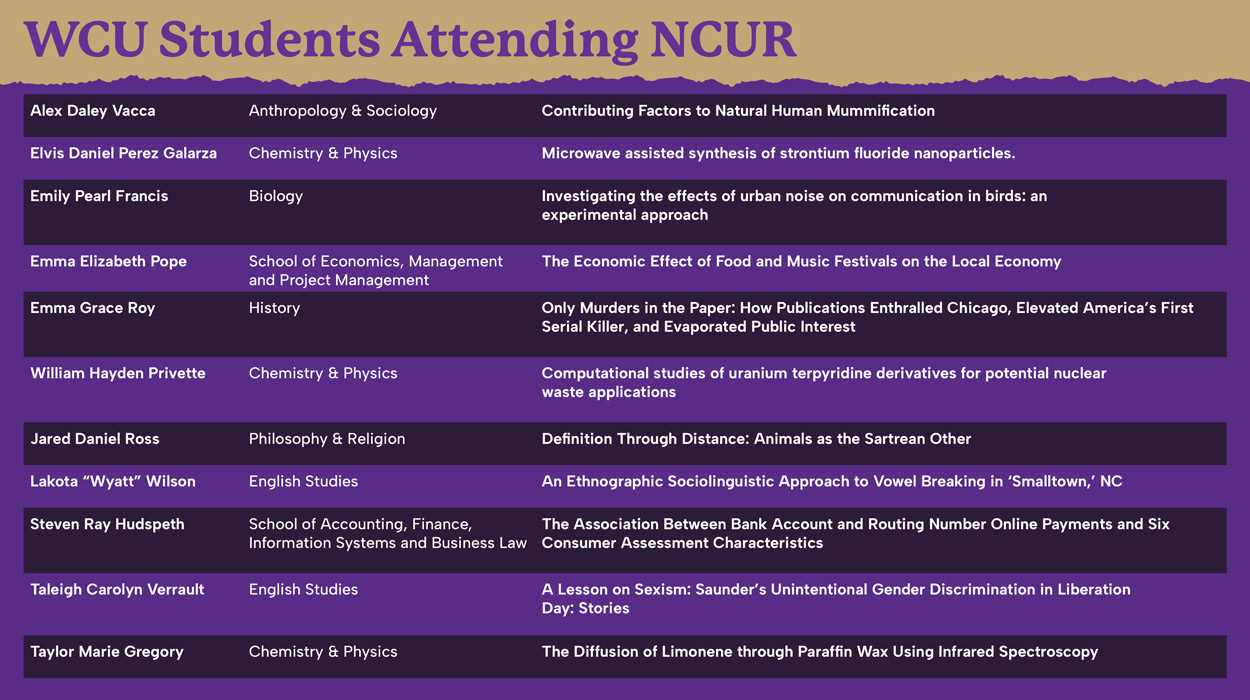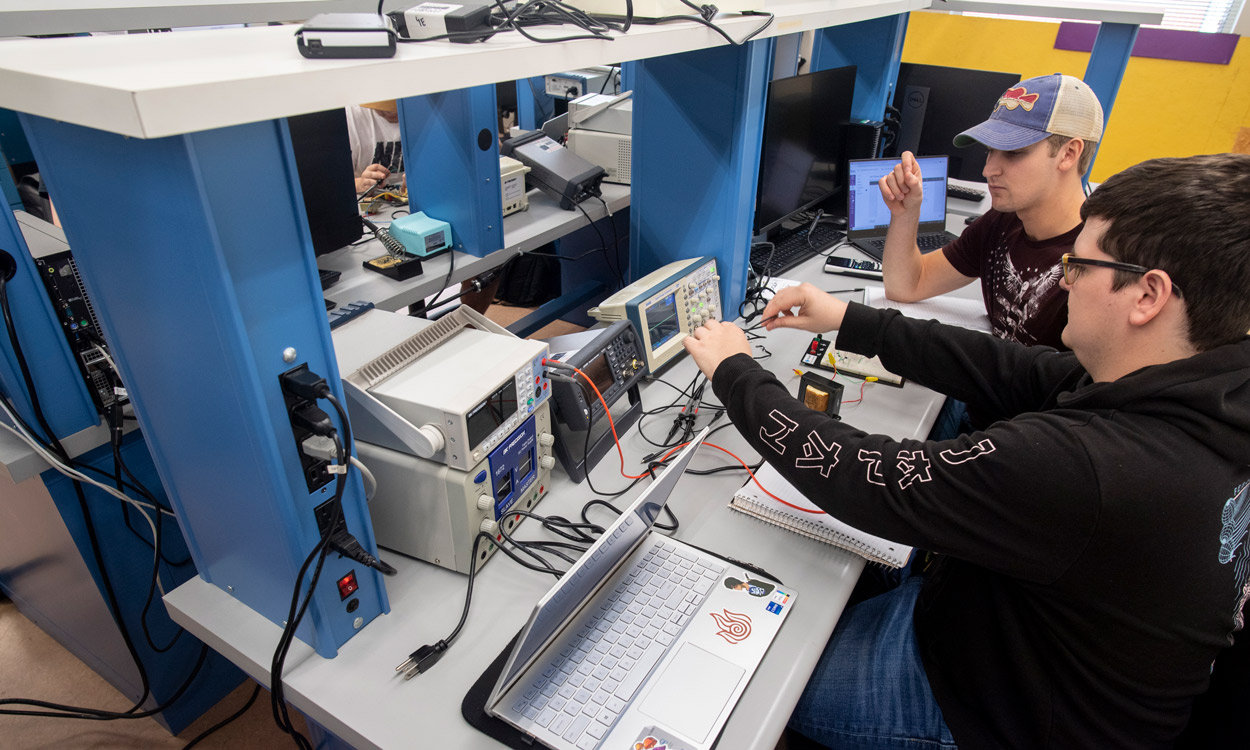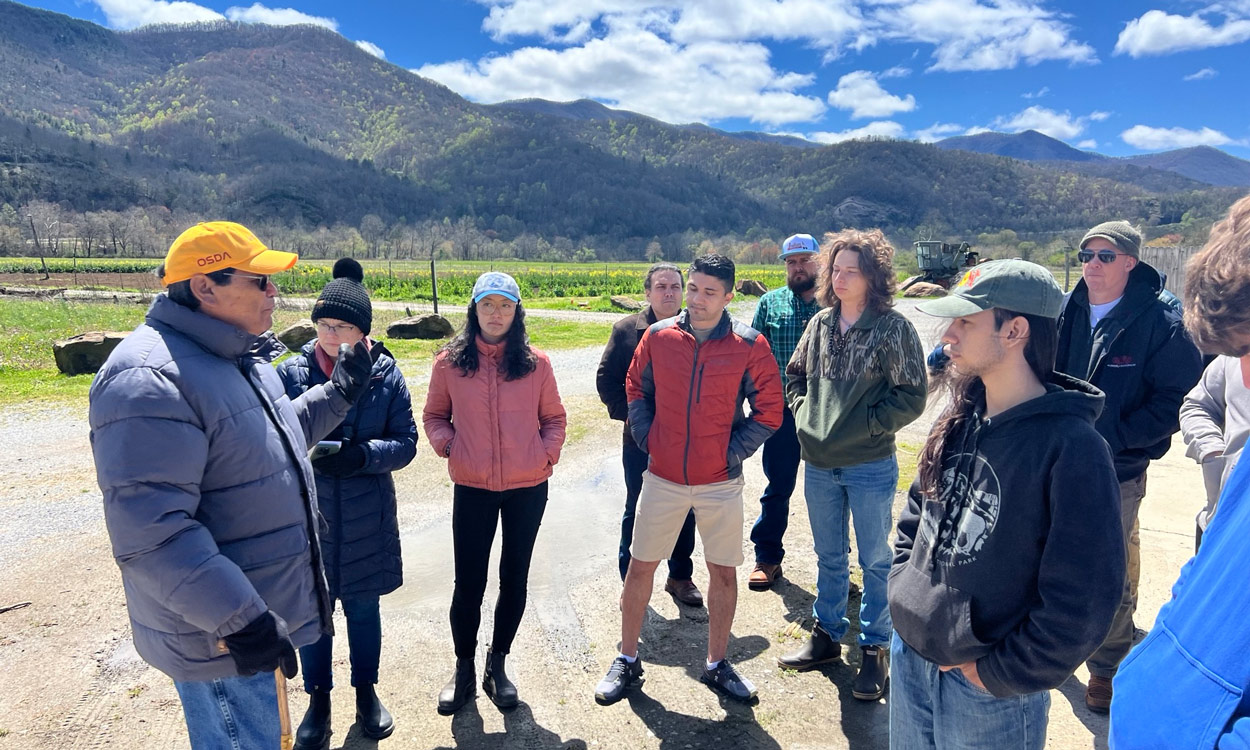Student research examines smalltown, southern speech
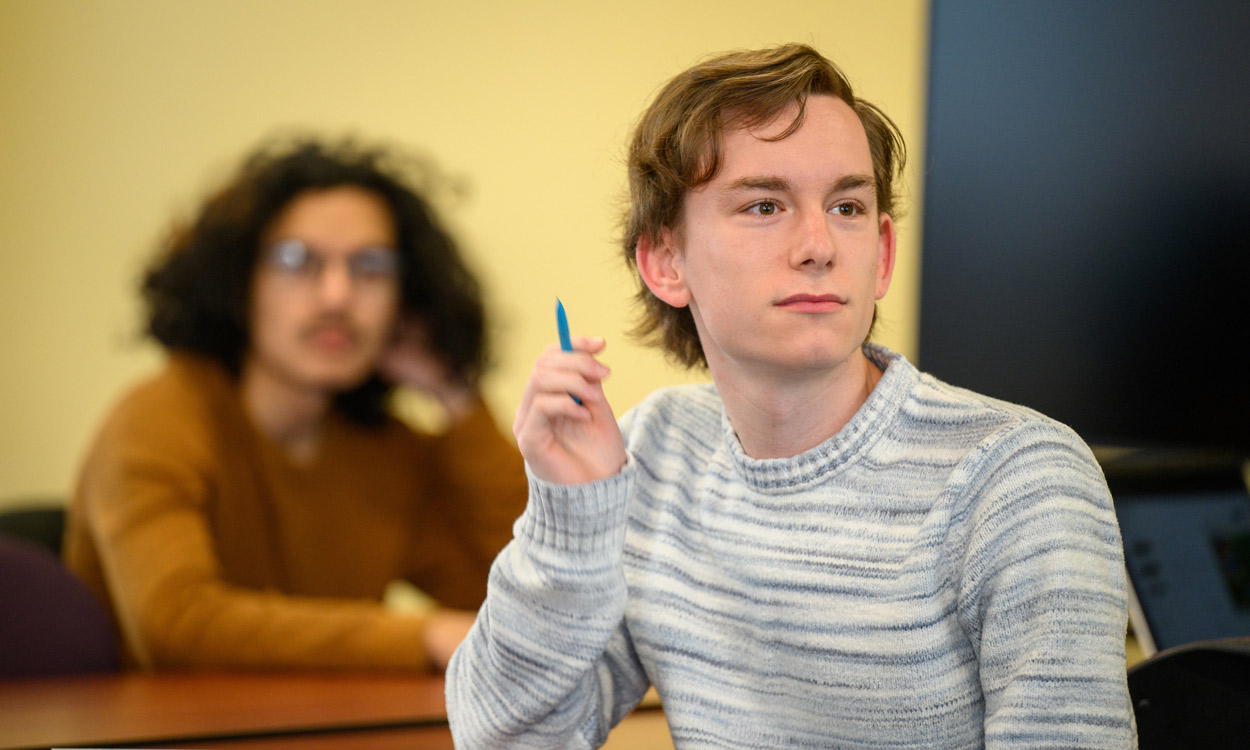
Wyatt Wilson
By Chaz Lilly
Do southern folks talk funny?
Western Carolina University junior Wyatt Wilson says yes, but his research shows why.
He has been examining the social aspects of language to better understand the culture that is shaped by the voices of his hometown.
Growing up in Cherryville, a town of some 6,000 people, Wilson said he was always fascinated by the language of the place.
“I love the little idiosyncrasies. The sounds, how they break vowels. I love my community for its uniqueness,” Wilson said.
In his research project, “An Ethnographic Sociolinguistic Approach to Vowel Breaking in ‘Smalltown,’ NC,” Wilson went to local businesses in Cherryville – a salon and a jewelry store – and recorded conversations.
“Speech patterns within certain communities contain ethnographic information about that community and the conversations that take place in particular local spaces,” Wilson said.
What he was really listening for was the way locals broke their vowels in certain contexts. Vowel breaking, or diphthongization, occurs in many southern American dialects where a single vowel sound (monophthong) becomes a diphthong with two vowel sounds.
Think of the words “rice” or “bite.” Some southerners might sneak an “a” sound before the “i” making two vowels out of one.
“The research examined the frequency of vowel breaking in speech and also the kinds of ethnographic or cultural information transmitted through this dialect feature,” Wilson said.
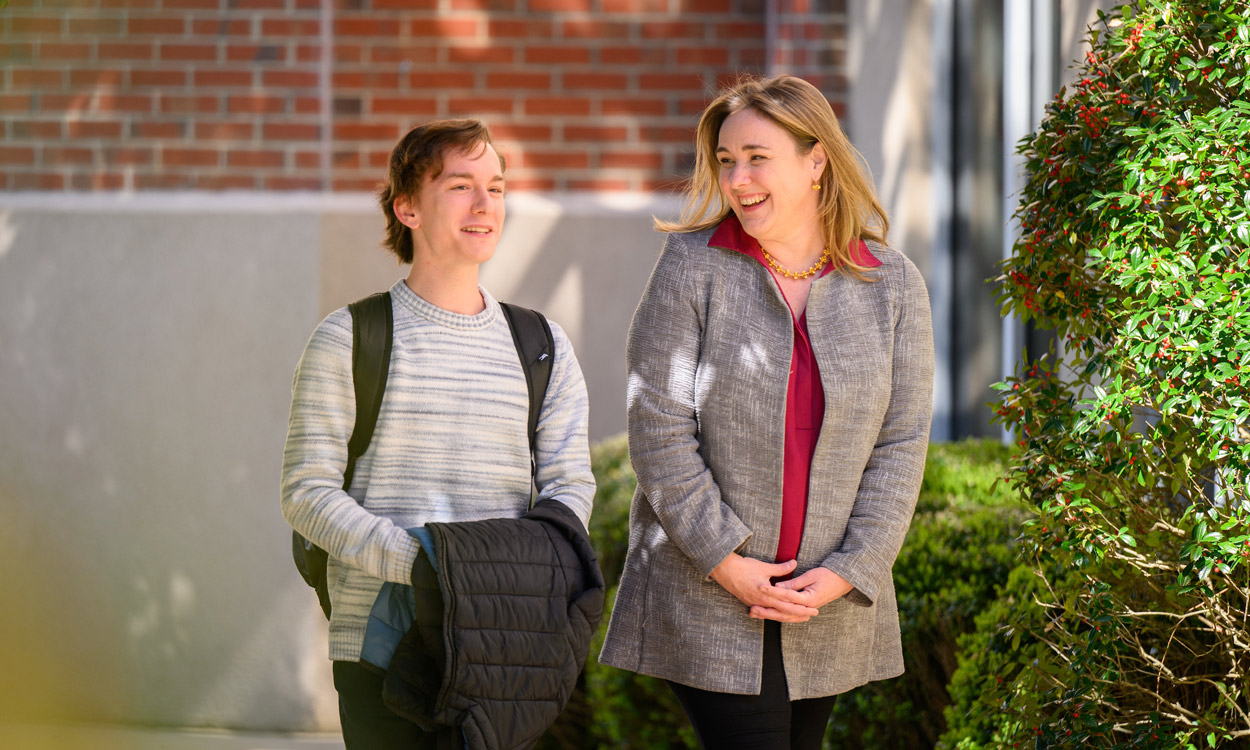
With the help of Erin Callahan (right), WCU English studies associate professor, Wyatt Wilson examined the social aspects of language to better understand the culture that is shaped by the voices of his hometown of Cherryville.
After transcribing the recorded conversations, Wilson developed a coding sheet, or a system of organization, that detailed various situations where vowels were broken. He explained the possible social reasons why this occurred in addition to noting the other vowels in the word. He also noted the different sentence structures where the vowel breaking occurred.
Overall, he found that 95% of the vowels he had coded were broken. Most often, he found, the vowel breaking occurred while the speaker was attenuating, or softening, a request. Speakers also tended to use vowel breaking while clarifying a certain point.
As an expert in sociolinguistics, Erin Callahan, English studies associate professor, helped Wilson through his research.
“This project examines both the individual and the community. It pulls from sociology, ethnography, local engagement and lived experience,” Callahan said. “Wyatt is an incisive researcher and he’s gone the extra mile in a project that embraces his roots and identity.”
Wilson said he plans on returning to Cherryville to teach after he graduates.
“Professor Callahan has encouraged me to embrace my regional identity,” Wilson said. “She is really incredible and has been instrumental in the way I’ve been developing an understanding of the world.”
Wilson, along with 10 other WCU students, is presenting his project this week in Long Beach, California, at the National Conference on Undergraduate Research.
